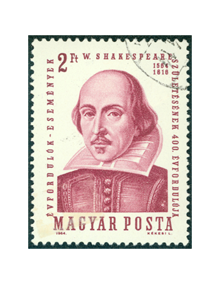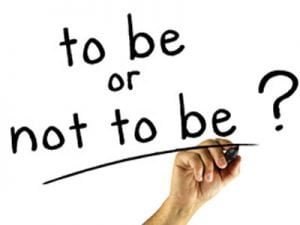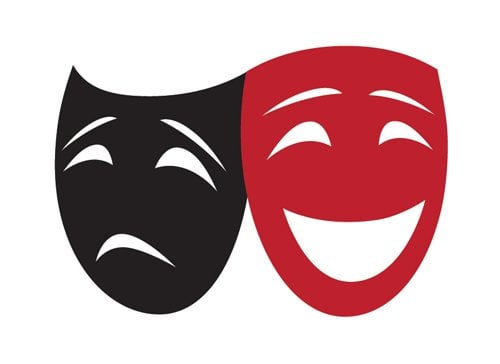William Shakespeare is often credited with having a profound influence on language, literature, theater, and other elements of culture. It would not be difficult to argue that we owe most of modern storytelling’s characteristics to Shakespeare. Theater has never been the same since his plays’ first performances, and Shakespeare’s influence can be noted in everything from contemporary dialogue to expectations of audience behavior. It’s been asserted by historians that the circulation of Shakespeare’s First Folio, a bound collection of his plays that was published posthumously, began to solidify his role as one of the most important figures in history. He’s the most highly regarded dramatist in the world, and Shakespeare’s influence is just as pronounced today as it was centuries ago.
 No playwright before him could appeal to the masses quite like Shakespeare. Theater up until his time had been uniquely reserved for the wealthy and the educated. With the emergence of Shakespeare’s writing came tales that appealed to the masses. His plays were often imbued with universal truths of human existence, rather than acting as mirrors of the privileged life. As a result, the experience of Shakespeare’s plays in the theater took a populist turn. Audience members engaged with the events taking place on stage, becoming vocal and often raucous. At times, it may have been difficult to determine which individuals were audience members and which were part of a performing troupe.
No playwright before him could appeal to the masses quite like Shakespeare. Theater up until his time had been uniquely reserved for the wealthy and the educated. With the emergence of Shakespeare’s writing came tales that appealed to the masses. His plays were often imbued with universal truths of human existence, rather than acting as mirrors of the privileged life. As a result, the experience of Shakespeare’s plays in the theater took a populist turn. Audience members engaged with the events taking place on stage, becoming vocal and often raucous. At times, it may have been difficult to determine which individuals were audience members and which were part of a performing troupe.
- Shakespeare’s Elizabethan Audience (PDF)
- Theater Culture of Early Modern England
- Shakespeare: The Theater
Most of what we know about modern storytelling and language can be traced back to Shakespeare. Theater, in particular, has experienced many changes due to his influence. For example, the way in which Shakespeare’s plots move forward has helped define modern play-writing. Similarly, Shakespeare’s complex characterizations have brought forth a new type of storytelling in which characters’ choices drive plots forward. As a result, journeys in his plays are dynamic and his characters undergo a significant amount of change while on them. In addition, Shakespeare is also credited as having invented genres that mixed both tragedy and comedy. His genre-bending work contributed to brand-new experiences of both storytelling and theater.
- Shakespeare’s Genres
- The Characters of Shakespeare: A Visual Analysis
- Shakespeare’s Influence on Other Artists
Shakespeare’s plays were also a formative force in American theater. Despite still being in its infancy in the early 19th century, the country’s theater productions were predominately of plays written by the Bard. Productions could be seen on frontiers or even in towns that were not yet completely settled. These early performances in the new America may have even influenced what we now know as performance art. In addition, many famous American novelists cite Shakespeare as a great influence on their own works.
 Some historians of modern musical theater argue that the adaption of Shakespeare’s plays into 20th-century productions has changed the form and function of musicals. Before this period, musicals were known to place musical numbers and performances in between dramatic scenes to act as breaks from the main action. The adaption of Shakespeare’s plays into modern pieces, however, paved the way for musical performances to become integral to the dramatic story. One example of this is West Side Story, which inventively uses songs to drive the plot and as immediate responses to beats within the story.
Some historians of modern musical theater argue that the adaption of Shakespeare’s plays into 20th-century productions has changed the form and function of musicals. Before this period, musicals were known to place musical numbers and performances in between dramatic scenes to act as breaks from the main action. The adaption of Shakespeare’s plays into modern pieces, however, paved the way for musical performances to become integral to the dramatic story. One example of this is West Side Story, which inventively uses songs to drive the plot and as immediate responses to beats within the story.
Shakespeare had an influence on an international level as well. Foreign stages often had to contend with special circumstances when performing the works of Shakespeare. Theater clowns with bilingual abilities were typically employed to help translate the plays’ dialogue as it was revealed to the audience. To add to this unique performance, these clowns often satirized dialogue and the plot, which led to the potential for different experiences of the play. As a result, players in traveling Shakespeare troupes would often try to protect the integrity of the plays by taking on additional production roles to ensure fidelity to the original works. Actors sometimes doubled as directors, and directors could adopt the duties of producer. These multiple roles may have helped to usher in the legitimacy of the hyphenate artist as we have come to know them today.


